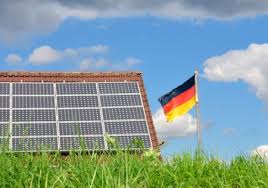 When it comes to electricity market transformations, Volker Beckers knows a thing or two. He’s been in the energy business in Europe for 20-odd years, including a stint as group CEO of German power giant RWE – the company that did a spectacular about-face in 2014, after admitting it had got its strategy wrong, and should have focused more on renewable and distributed energy rather than conventional fossil fuels.
When it comes to electricity market transformations, Volker Beckers knows a thing or two. He’s been in the energy business in Europe for 20-odd years, including a stint as group CEO of German power giant RWE – the company that did a spectacular about-face in 2014, after admitting it had got its strategy wrong, and should have focused more on renewable and distributed energy rather than conventional fossil fuels.
Of course, RWE only made that admission after it had endured massive losses totalling €2.8 billion – a fate that befell the majority of Germany’s industry incumbents who failed to see the writing on the wall, some of which have lost as much as 80 per cent of their market capitalisation over the past four years.
From this perspective, Beckers has some valuable advice to offer Australian industry incumbents – and regulators and politicians, by association – as we head into our own energiewende.
Speaking at the opening plenary session of the 2015 All-Energy Australia conference in Melbourne on Wednesday, Beckers compared the energy market to an ailing patient, who is finally in an operating theatre after years on a waiting list, and is about to undergo multiple surgeries, to be undertaken by multiple surgeons… who aren’t talking to each other. The outcome cannot be good.
Right now, the Australian energy market is on that gurney. And Becker’s message to all players is, you don’t have to stuff this up.
In Germany, while the energiewende has been a huge success in terms of added renewables capacity, it has come at a cost, particularly to industry incumbents – the country is now home to 1000 energy companies.
“In Germany right now, you see a market distorted by political changes, unpredictable changes. The extreme is that some lost 80-90% of market cap within four years,” he said.
And there is also the matter of cost.
For the EU member states to meet their renewables and emissions targets, they will need to invest €270 billion in renewables every year from now to 2050 – the equivalent of hosting the Olympic Games every year, twice a year, for the next 15 years, Beckers says.
So what are the ingredients to a smoother energy transition?
“The importance of regulatory certainty in this environment is absolutely key,” Beckers told the conference.
“The most important thing is that politicians can create is a stable and predictable environment. Incumbent players’ balance sheets are really strained. You need new groups, new sectors to attract funds.”
“Retroactive change has led to investors leaving the market. And 11th hour changes no good. …The best environment should be a consistent and coherent market framework and a robust emissions trading scheme.
For policy makers, says Beckers, it is essential to stop treating renewable energy as a political football.
“Create an environment of support, and avoid retroactive change. Governments are elected for only a few years, while the investment pathway needs to be 20 years minimum.
For market design, Beckers recommends an incremental approach.
“Every decision should be based on economic efficiency. They should consider both supply and demand, making sure adjacent industries are included.”
Regulators, meanwhile, must remove barriers to competitive technology, so that investors have an environment where they can create and drive innovation.
As for networks and retailers, Beckers says one of their biggest challenges will be to become more customer-centric.
One of the best outcomes of the energy market transformation, he says, is it has resulted in an environment where customers have become more engaged in the energy market, and that has led to different level of understanding.
“The rhetoric in big companies has seen consumers change from ‘client’ to ‘customer’ to ‘service customer’, but this was just a change of rhetoric,” he said.
“Ask what the consumer wants, and work from there. The successful model is seen in those incumbent utilities who start to invest in smaller smart tech companies that are digitising customer data.
“They have realised their business is more than just delivering electricity and gas. They have to invest in micro generation, digital platforms, energy management,” etc.
“It’s going to be a big change, but I want to caution as well, these companies will compete with SME businesses. They might face the same phenomena in Germany.”










